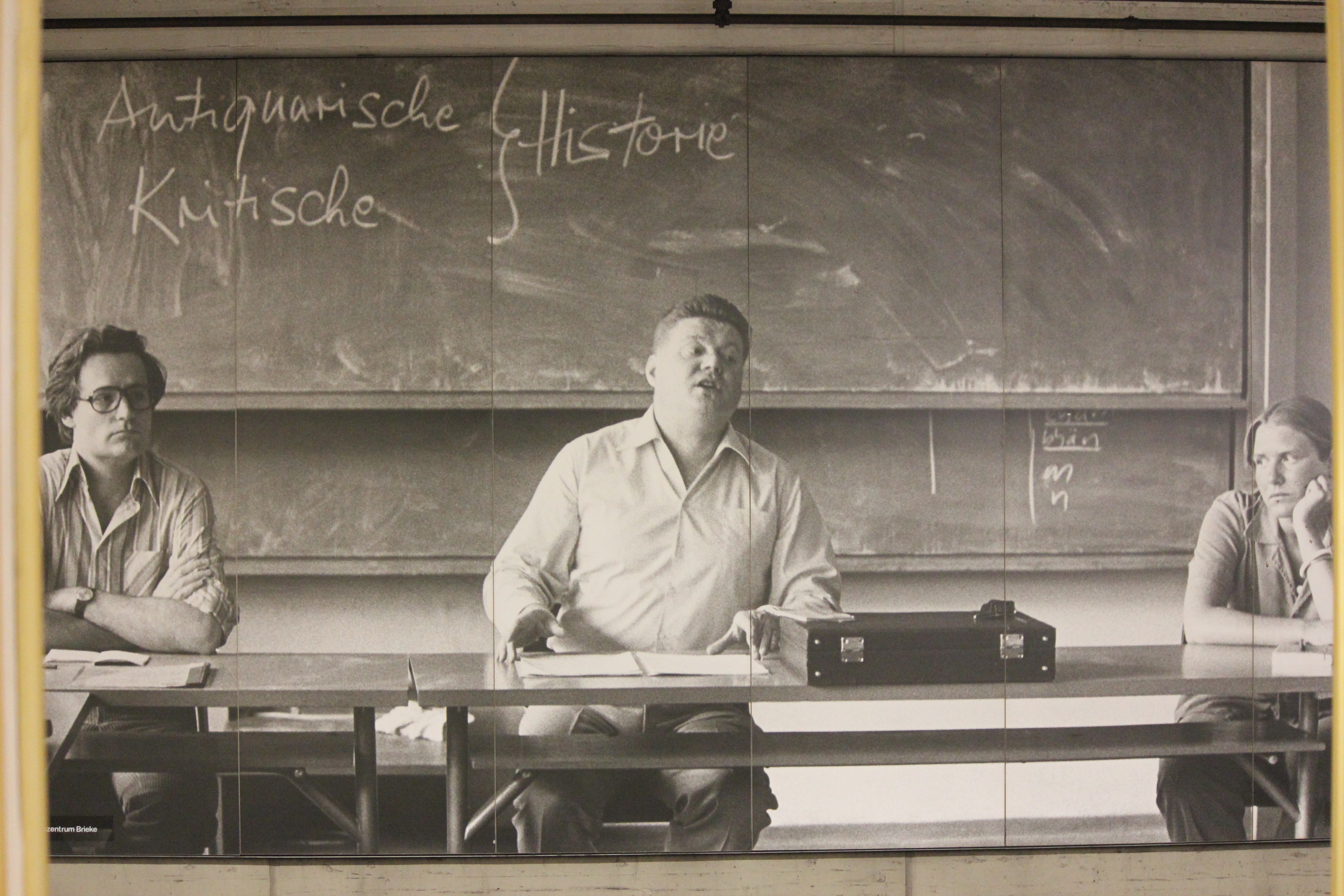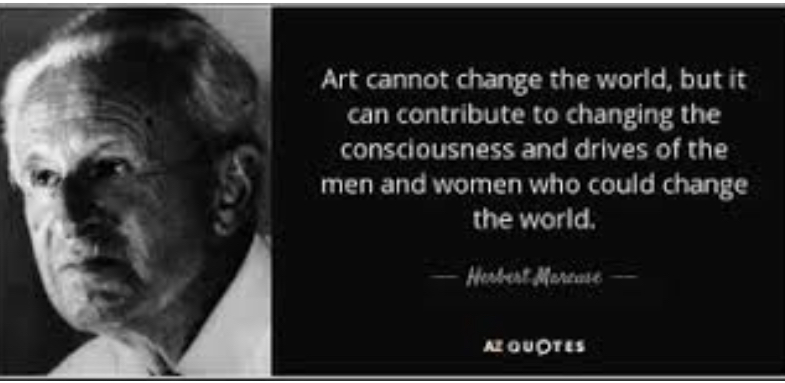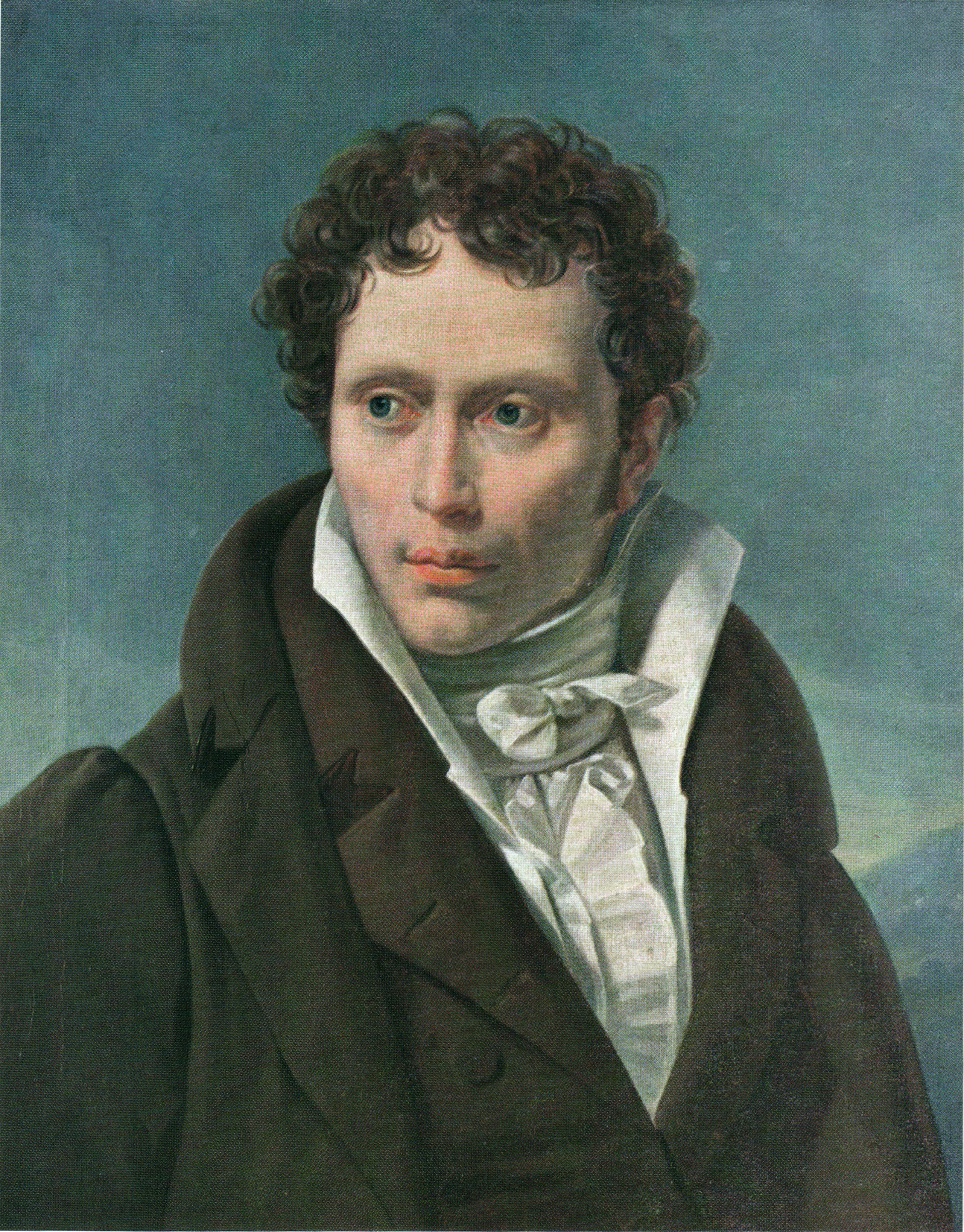|
Alfred Schmidt (philosopher)
Alfred Schmidt (; ; born 19 May 1931, Berlin – 28 August 2012, Frankfurt am Main) was a German philosopher. Biography Schmidt studied history and English as well as classical philology at the Goethe University Frankfurt and later philosophy and sociology. He was a student of Theodor W. Adorno and Max Horkheimer and gained his doctorate with his ''The Concept of Nature in Marx''. Schmidt was professor of philosophy and sociology at the University of Frankfurt from 1972 and was made emeritus in 1999. Schmidt's primary research topics were the critical theory of the Frankfurt School, philosophy of religion, and Arthur Schopenhauer's philosophy. Schmidt was a member of the International PEN and an honorary member of the Schopenhauer Society. Major works * ''Der Begriff der Natur in der Lehre von Karl Marx''. Frankfurt am Main: Europäische Verlagsanstalt, 1962. (English translation: ''The Concept of Nature in Marx''. Translated by Ben Fowkes. London: NLB, 1971, .) * ''Ge ... [...More Info...] [...Related Items...] OR: [Wikipedia] [Google] [Baidu] |
Frankfurt School
The Frankfurt School (german: Frankfurter Schule) is a school of social theory and critical philosophy associated with the Institute for Social Research, at Goethe University Frankfurt in 1929. Founded in the Weimar Republic (1918–1933), during the European interwar period (1918–1939), the Frankfurt School initially comprised intellectuals, academics, and political dissidents dissatisfied with the contemporary socio-economic systems (capitalist, fascist, communist) of the 1930s. The Frankfurt theorists proposed that social theory was inadequate for explaining the turbulent political factionalism and reactionary politics occurring in 20th century liberal capitalist societies. Critical of both capitalism and of Marxism–Leninism as philosophically inflexible systems of social organization, the School's critical theory research indicated alternative paths to realizing the social development of a society and a nation. The Frankfurt School perspective of critical investigat ... [...More Info...] [...Related Items...] OR: [Wikipedia] [Google] [Baidu] |
German Philosophers
German(s) may refer to: * Germany (of or related to) ** Germania (historical use) * Germans, citizens of Germany, people of German ancestry, or native speakers of the German language ** For citizens of Germany, see also German nationality law **Germanic peoples (Roman times) * German language **any of the Germanic languages * German cuisine, traditional foods of Germany People * German (given name) * German (surname) * Germán, a Spanish name Places * German (parish), Isle of Man * German, Albania, or Gërmej * German, Bulgaria * German, Iran * German, North Macedonia * German, New York, U.S. * Agios Germanos, Greece Other uses * German (mythology), a South Slavic mythological being * Germans (band), a Canadian rock band * "German" (song), a 2019 song by No Money Enterprise * ''The German'', a 2008 short film * "The Germans", an episode of ''Fawlty Towers'' * ''The German'', a nickname for Congolese rebel André Kisase Ngandu See also * Germanic (other) ... [...More Info...] [...Related Items...] OR: [Wikipedia] [Google] [Baidu] |
German Male Writers
German(s) may refer to: * Germany (of or related to) **Germania (historical use) * Germans, citizens of Germany, people of German ancestry, or native speakers of the German language ** For citizens of Germany, see also German nationality law **Germanic peoples (Roman times) * German language **any of the Germanic languages * German cuisine, traditional foods of Germany People * German (given name) * German (surname) * Germán, a Spanish name Places * German (parish), Isle of Man * German, Albania, or Gërmej * German, Bulgaria * German, Iran * German, North Macedonia * German, New York, U.S. * Agios Germanos, Greece Other uses * German (mythology), a South Slavic mythological being * Germans (band), a Canadian rock band * "German" (song), a 2019 song by No Money Enterprise * ''The German'', a 2008 short film * "The Germans", an episode of ''Fawlty Towers'' * ''The German'', a nickname for Congolese rebel André Kisase Ngandu See also * Germanic (other) * Germa ... [...More Info...] [...Related Items...] OR: [Wikipedia] [Google] [Baidu] |
2012 Deaths
This is a list of deaths of notable people, organised by year. New deaths articles are added to their respective month (e.g., Deaths in ) and then linked here. 2022 2021 2020 2019 2018 2017 2016 2015 2014 2013 2012 2011 2010 2009 2008 2007 2006 2005 2004 2003 2002 2001 2000 1999 1998 1997 1996 1995 1994 1993 1992 1991 1990 1989 1988 1987 See also * Lists of deaths by day The following pages, corresponding to the Gregorian calendar, list the historical events, births, deaths, and holidays and observances of the specified day of the year: Footnotes See also * Leap year * List of calendars * List of non-standard ... * Deaths by year {{DEFAULTSORT:deaths by year ... [...More Info...] [...Related Items...] OR: [Wikipedia] [Google] [Baidu] |
1931 Births
Events January * January 2 – South Dakota native Ernest Lawrence invents the cyclotron, used to accelerate particles to study nuclear physics. * January 4 – German pilot Elly Beinhorn begins her flight to Africa. * January 22 – Sir Isaac Isaacs is sworn in as the first Australian-born Governor-General of Australia. * January 25 – Mohandas Gandhi is again released from imprisonment in India. * January 27 – Pierre Laval forms a government in France. February * February 4 – Soviet leader Joseph Stalin gives a speech calling for rapid industrialization, arguing that only strong industrialized countries will win wars, while "weak" nations are "beaten". Stalin states: "We are fifty or a hundred years behind the advanced countries. We must make good this distance in ten years. Either we do it, or they will crush us." The first five-year plan in the Soviet Union is intensified, for the industrialization and collectivization of agriculture. * February 10 � ... [...More Info...] [...Related Items...] OR: [Wikipedia] [Google] [Baidu] |
Herbert Marcuse
Herbert Marcuse (; ; July 19, 1898 – July 29, 1979) was a German-American philosopher, social critic, and political theorist, associated with the Frankfurt School of critical theory. Born in Berlin, Marcuse studied at the Humboldt University of Berlin and then at Freiburg, where he received his PhD. He was a prominent figure in the Frankfurt-based Institute for Social Research – what later became known as the Frankfurt School. He was married to Sophie Wertheim (1924–1951), Inge Neumann (1955–1973), and Erica Sherover (1976–1979). In his written works, he criticized capitalism, modern technology, Soviet Communism and popular culture, arguing that they represent new forms of social control. Between 1943 and 1950, Marcuse worked in US government service for the Office of Strategic Services (predecessor of the Central Intelligence Agency) where he criticized the ideology of the Communist Party of the Soviet Union in the book '' Soviet Marxism: A Critical Analysis'' (195 ... [...More Info...] [...Related Items...] OR: [Wikipedia] [Google] [Baidu] |
Jeffrey Herf
Jeffrey C. Herf (born April 24, 1947) is an American historian of Modern European, in particular, modern German history. He is Distinguished University Professor of modern European at the University of Maryland, College Park. Biography He was born and raised in Milwaukee, Wisconsin. Herf's father escaped from Nazi Germany in 1937 and immigrated to the United States. His mother's parents left Ukraine to came to the United States before World War I. He grew up in a Reform Jewish family in Milwaukee, Wisconsin. Herf graduated in history from the University of Wisconsin–Madison in 1969 and received his PhD in sociology from Brandeis University in 1981. Before joining the faculty at the University of Maryland, he taught at Harvard University, Ohio University, and Emory University. In his 1984 book, '' Reactionary Modernism: Technology, Culture and Politics in Weimar and the Third Reich'', drawing on critical theory, in particular ideology critique, Herf coined the term "reactionar ... [...More Info...] [...Related Items...] OR: [Wikipedia] [Google] [Baidu] |
Schopenhauer Society
The Schopenhauer Society (german: Schopenhauer-Gesellschaft) is a literary and philosophical society devoted to research into the work, life and influence of the philosopher Arthur Schopenhauer (1788–1860). The society was founded in 1911 by the Sanskrit scholar, philosopher and orientalist Paul Deussen and has its seat in Frankfurt. Since 1912, the society has published the ''Journal of the Schopenhauer Society'' (german: Jahrbuch der Schopenhauer-Gesellschaft). From the 1920s, the society became increasingly academic in its orientation, and it hosted major international academic congresses on "Europe and India" (Dresden 1927), "Philosophy and Religion" (Frankfurt 1929) and "Theory and Reality" (Hamburg 1931). The society saw a revival in the postwar era, with numerous congresses, seminars and lectures, in addition to the publication of its journal. It has sections in India, Brazil, Italy, Poland and Australasia. The society has around 600 members.Andreas Hansert: ''Schopenhauer ... [...More Info...] [...Related Items...] OR: [Wikipedia] [Google] [Baidu] |
International PEN
PEN International (known as International PEN until 2010) is a worldwide association of writers, founded in London in 1921 to promote friendship and intellectual co-operation among writers everywhere. The association has autonomous International PEN centers in over 100 countries. Other goals included: to emphasise the role of literature in the development of mutual understanding and world culture; to fight for freedom of expression; and to act as a powerful voice on behalf of writers harassed, imprisoned and sometimes killed for their views. History The first PEN Club was founded at the Florence Restaurant in London on October 5, 1921, by Catherine Amy Dawson Scott, with John Galsworthy as its first president. Its first members included Joseph Conrad, Elizabeth Craig, George Bernard Shaw, and H. G. Wells. PEN originally stood for "Poets, Essayists, Novelists", but now stands for "Poets, Playwrights, Editors, Essayists, Novelists", and includes writers of any form of literatur ... [...More Info...] [...Related Items...] OR: [Wikipedia] [Google] [Baidu] |

.jpg)



